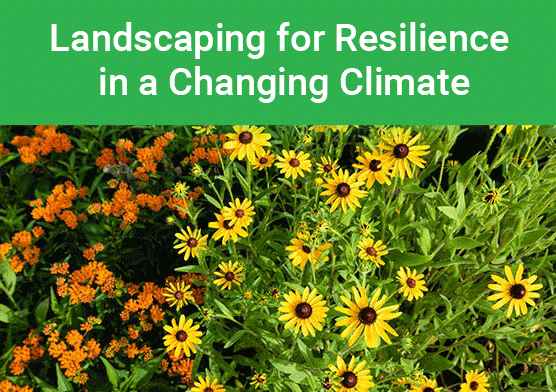The EFC is pleased to announce the release of a new online course at the MOST Center: Landscaping for Resilience in a Changing Climate. Developed in collaboration with the Chesapeake Bay Landscape Professional Program and University of Maryland Extension, this course outlines ways in which a changing climate will impact landscaping within the Chesapeake Bay watershed, and it describes sustainable landscaping practices that can help mitigate climate change and promote resilience.

The Earth's climate is changing. Impacts - including higher temperatures, rising sea levels, and longer periods of extreme weather - are already being felt in the Chesapeake Bay watershed and are expected to worsen. The good news is that there are actions we can all take to help lessen the blow. Landscape professionals, in particular, have a unique opportunity to address the effects of climate change.
This course explains the difference between weather and climate and provides an overview of how human activities are contributing to this rapid and unprecedented pace of climate change. Specific impacts on the Chesapeake Bay watershed are covered along with sustainable landscape practices that can be used to help mitigate climate change and promote resilience. Practices include using native plants and trees, designing for extreme precipitation, and installing resilient stormwater BMPs to mitigate flooding and other impacts. The course ends with an overview of landscaping strategies specific to the natural and built environments at the water's edge.
Certified Chesapeake Bay Landscape Professionals can earn 2.0 CBLP CEUs for taking this course.

